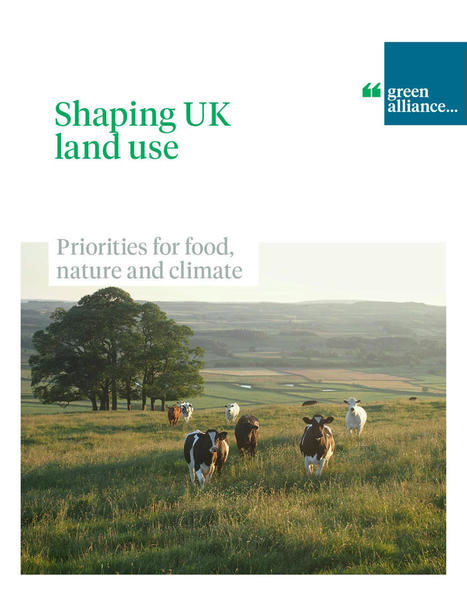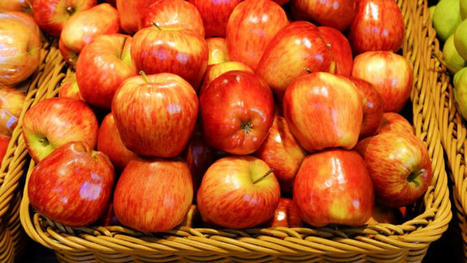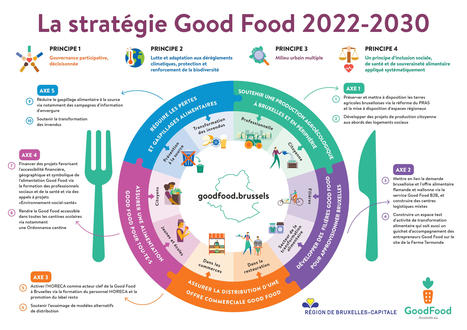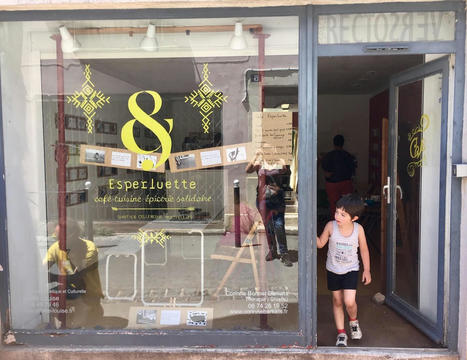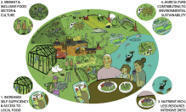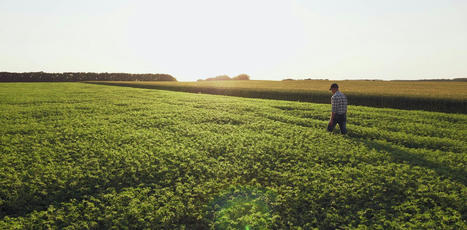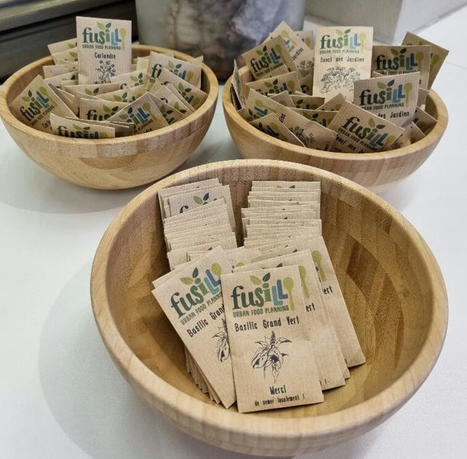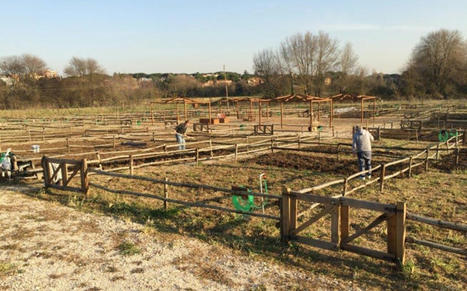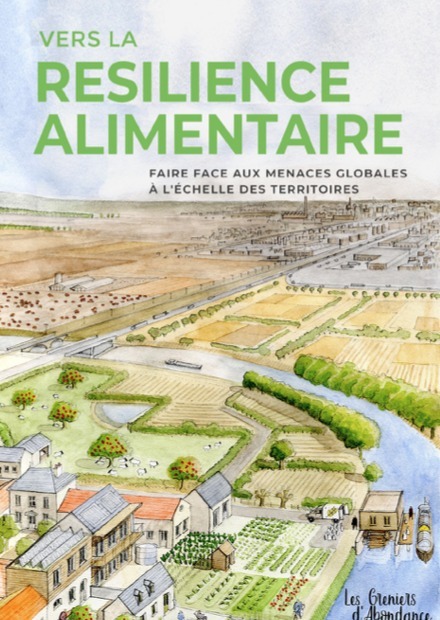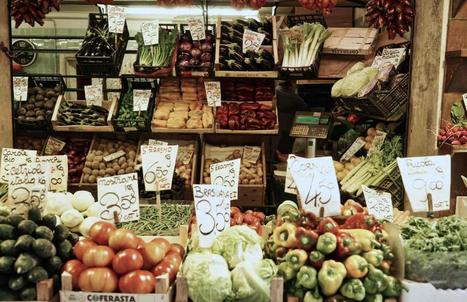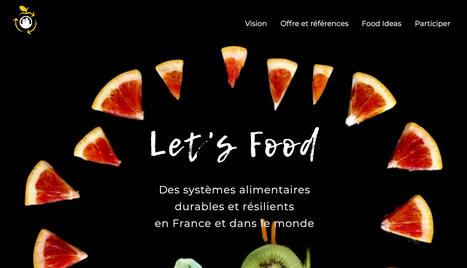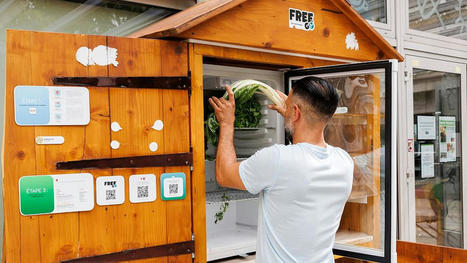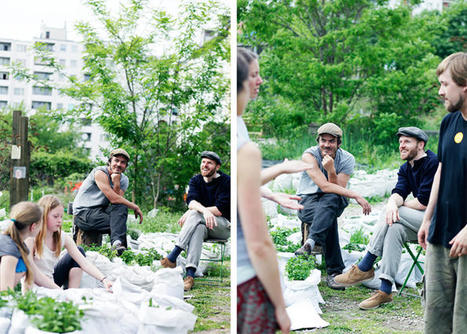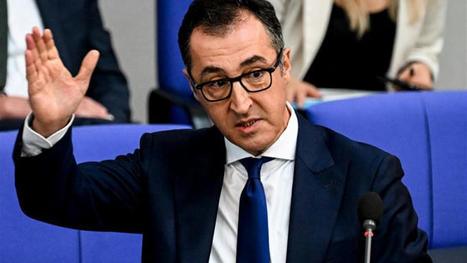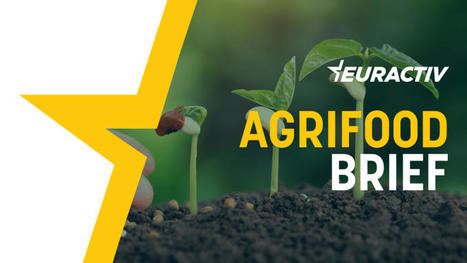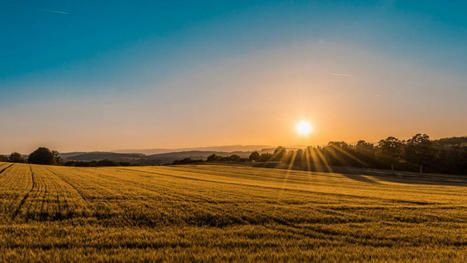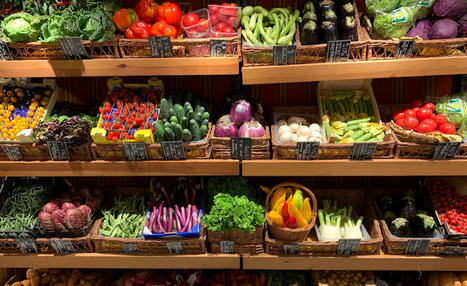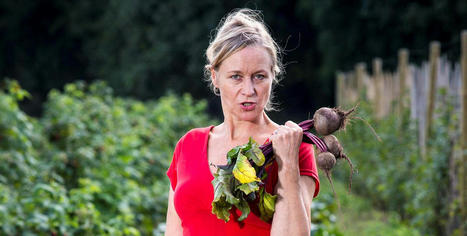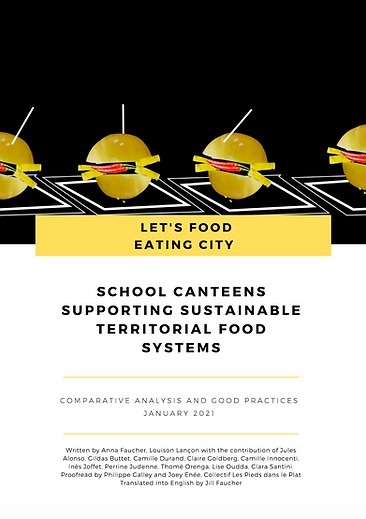 Your new post is loading...

|
Scooped by
Energy Cities
June 14, 9:15 AM
|
Urban and guerrilla gardening can contribute to cooling cities while bringing people together, providing critical spaces for education and active citizenship.

|
Scooped by
Energy Cities
August 1, 2023 7:54 AM
|
The galloping inflation in Europe has made the problem of food security central even in the wealthy and industrialized societies of the EU. In response, the Brussels-Capital Region government has decided to make it obligatory for large supermarkets to donate their unsold food, starting in 2024, as a way to counteract the issue.

|
Scooped by
Energy Cities
February 27, 2023 10:44 AM
|
Green Alliance is an independent think tank and charity focused on ambitious leadership for the environment

|
Scooped by
Energy Cities
January 4, 2023 2:51 AM
|
The European Commission presented its annual working plan to help agri-food producers promote their products in the EU and abroad, with a focus on sustainability, quality, animal welfare, and healthy eating habits.

|
Scooped by
Energy Cities
December 12, 2022 8:50 AM
|
Le 2 juin 2022, la stratégie Good Food 2 (2022-2030)
s'ouvre dans une nouvelle fenêtre a été approuvée par le gouvernement bruxellois.
La stratégie Good Food 2 ambitionne que tou·te·s les Bruxellois·es aient accès à des aliments Good Food adaptés à leurs besoins, dans le respect d'un prix juste pour les producteurs·rices. Afin d'atteindre ces objectifs, la Région bruxelloise a impliqué les acteurs·rices du secteur social et de la santé et a adopté une approche de l'alimentation « par quartier », au plus proche des citoyen·ne·s.

|
Scooped by
Energy Cities
September 29, 2022 3:10 AM
|

|
Scooped by
Energy Cities
September 28, 2022 8:10 AM
|
Globally, food systems face multifaceted sustainability challenges and the need for food system transformation is increasingly acknowledged. However, …

|
Scooped by
Energy Cities
July 28, 2022 9:39 AM
|
Pollutions, perte de biodiversité, changement climatique, mais aussi maladies chroniques liées à l’alimentation et à l’environnement : autant de problématiques à aborder de façon transversale.

|
Scooped by
Energy Cities
June 21, 2022 10:14 AM
|
We launched an action to gather feedback and ideas from the citizens of Differdange. We sent them a postcard, which was featured in the monthly magazine of the city. Next to the postcard, the magazine also included an article dedicated to FUSILLI, which was a great opportunity to explain the project to the citizens of Differdange.
With the postcard, we want the citizens to send us their ideas. The citizens could return their answers online or bring the postcard to the cultural centre.

|
Scooped by
Energy Cities
June 21, 2022 10:09 AM
|
The City of Rome developed a participatory urban gardening project. The aim of the project is two-fold: it fights social exclusion and poverty and allows brownfield recovery.
Working with NGOs, citizens, disadvantaged people and minorities, the city uses the urban and suburban agriculture as a means to improve governance processes. Alongside employment policy, social and intercultural dialogue has a pre-eminent role to play. The importance of other factors such as housing, health, culture and communication should also be acknowledged.

|
Scooped by
Energy Cities
May 24, 2022 8:09 AM
|
Cette publication inédite marque l’aboutissement d’un travail de recherche d’un an et demi, conduit par l’association Les Greniers d’Abondance et de nombreux partenaires scientifiques, experts et acteurs de terrain.
Il expose les vulnérabilités du système alimentaire contemporain face à différentes crises systémiques : changement climatique, épuisement des ressources, effondrement de la biodiversité…
Nous invitons les collectivités territoriales à se saisir de cet enjeu, en leur proposant un ensemble cohérent d’actions et de leviers à mettre en œuvre à leur échelle.

|
Scooped by
Energy Cities
May 24, 2022 8:00 AM
|
Wien Gusto’, as the brand is called, will source its produce from the nearly 2,000 hectares of farm land owned by the city
Yesterday, the city of Vienna announced that it will launch its own line of organic produce, which will be sold on the retail markets. The city owns around 2,000 hectares of arable land and vineyards, making it one of the largest organic farms in Austria.

|
Scooped by
Energy Cities
May 6, 2022 5:33 AM
|
L’association Let's Food vise à accompagner les territoires à la construction de systèmes alimentaires durables et résilients en s’appuyant sur la coopération territoriale et l’échange de bonnes pratiques aux échelles locale, nationale et internationale.
|

|
Scooped by
Energy Cities
August 2, 2023 6:07 AM
|
In this European city, you can share your unused groceries in free-to-use community fridges.
Are you constantly throwing out food that you didn't get around to eating?
In an effort to cut waste, a Geneva nonprofit is rolling out street-side, free-access refrigerators where people can give and take food that might otherwise perish.

|
Scooped by
Energy Cities
July 12, 2023 3:58 AM
|
Nomadisch Grün (Nomadic Green) launched Prinzessinnengärten (Princess gardens) as a pilot project in the summer of 2009 at Moritzplatz in Berlin Kreuzberg, a site which had been a wasteland for over half a century. Along with friends, activists and neighbours, the group cleared away rubbish, built transportable organic vegetable plots and reaped the first fruits of their labour.

|
Scooped by
Energy Cities
January 4, 2023 5:29 AM
|
Warsaw has implemented a project aimed at limiting food waste, with 76 schools joining the School Does Not Waste project

|
Scooped by
Energy Cities
January 4, 2023 2:50 AM
|
With plans for a national nutrition strategy in the EU Farm to Form vein, German agriculture minister Cem Özdemir wants to make diets healthier and more plant-based, but some say the proposal is dictating what people can and cannot eat.

|
Scooped by
Energy Cities
November 24, 2022 3:52 AM
|
The Romanian city of Oradea will redesign green spaces with local, wild and perennial plants, that can provide decoration all year round. The new spaces should also be nearly self-sufficient and self-..

|
Scooped by
Energy Cities
September 28, 2022 8:25 AM
|
During the pandemic, the small size and local ties of these food providers allowed for a quick response to the evolving demand for food. Farmers markets, salad suppliers and community growers were able to make healthy, locally grown foods more accessible while strengthening community ties through collaboration and volunteer opportunities.

|
Scooped by
Energy Cities
September 28, 2022 8:02 AM
|

|
Scooped by
Energy Cities
July 6, 2022 2:47 AM
|
A WWF report reveals that - at a time of global food insecurity - half of the UK's wheat harvest each year (equivalent to 11bn loaves of bread) is being used to feed livestock in an "inherently inefficient" process that is fuelling climate change and driving nature's decline in the UK and overseas.

|
Scooped by
Energy Cities
June 21, 2022 10:12 AM
|
The City of Turin has established an interdepartmental and intersectoral coordination on food policies that include and represent all offices dealing with it and encourage a shift from sectoral actions to more strategic approaches.
The goal is to improve the governance process in which all components of the city administration participate.

|
Scooped by
Energy Cities
May 26, 2022 7:04 AM
|
Based on a literature review on low-income people (defined here as the poorest 40% in terms of standard of living) food diets, this Issue Brief presents key elements on the practices and the relationship that this category of population has with sustainable food. The objective is to better qualify their food behaviors and aspirations, particularly with respect to the rest of the population, in order to characterize the participation of this social group in the transition to sustainable food. Finally, it is a question of identifying the conditions for a true co-construction of sustainable food paradigms, in a food justice perspective.

|
Scooped by
Energy Cities
May 24, 2022 8:03 AM
|
The transition towards territorial food systems requires new public policies that consider innovative and effective formulas for participatory governance, among other facilitating elements. Food democracy impacts citizen empowerment when it comes to bringing together actors for this necessary action for change. The local perspective and the consolidation of participatory structures can be nurtured through networks such as those promoted by the URBACT Programme through Local Action Groups.

|
Scooped by
Energy Cities
May 6, 2022 5:35 AM
|
School canteens supporting sustainable territorial food systems
School meals linked to local production are a major lever for initiating new food governance at the local level and thus co-constructing sustainable food systems at the territorial level. Following an in-depth study of the food systems of 14 territories in 8 countries, the Let's Food association, in partnership with Eating City, offers a comparative approach of school collective catering systems in order to highlight
good practices with regard to the various SDGs. set by the UN. These results are based on in-depth bibliographic research as well as numerous interviews with local stakeholders.
In order to accelerate the transition for all, the sharing of good associative, private and institutional practices is essential. Download
|
 Your new post is loading...
Your new post is loading...






